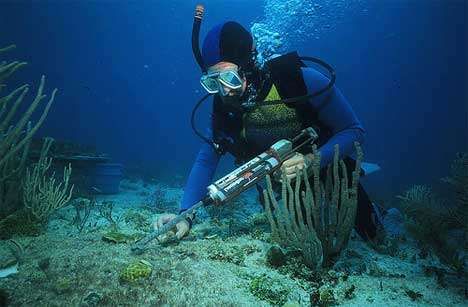
Coral Transplantation Could be the Solution to Damaged Oil Spill Reefs
Allison Love — June 5, 2010 — Eco
References: hindustantimes & eurekalert.org
Scientists believe that coral transplantation could be a cheap and easy solution for damaged and destroyed coral reefs from disasters like the BP oil spill. Dr. Graham Forrester led a series of scientists in research where they transplanted fresh coral onto an almost completely dead reef.
The results were promising, improving the reef's survival and coral growth rates. This coral transplantation discovery comes at a perfect time, as the aftermath from the disastrous oil spill continues to grow and precious underwater life is being destroyed. Coral transplantation could save valuable reefs.
The results were promising, improving the reef's survival and coral growth rates. This coral transplantation discovery comes at a perfect time, as the aftermath from the disastrous oil spill continues to grow and precious underwater life is being destroyed. Coral transplantation could save valuable reefs.
Trend Themes
1. Coral Transplantation - Opportunity to develop innovative techniques and technologies for efficient and cost-effective coral transplantation.
2. Reef Restoration - Potential for disruptive methods and strategies to restore damaged and destroyed coral reefs.
3. Oil Spill Recovery - Opportunity to create solutions and technologies to repair and rehabilitate coral reefs impacted by oil spills.
Industry Implications
1. Marine Biology - Application of coral transplantation techniques can revolutionize the field of marine biology and conservation efforts.
2. Environmental Remediation - Development of innovative strategies for reef restoration presents a significant business opportunity in the environmental remediation industry.
3. Tourism - Investment in coral reef restoration projects can attract ecotourism and benefit the tourism industry by preserving natural underwater habitats.
0.8
Score
Popularity
Activity
Freshness























